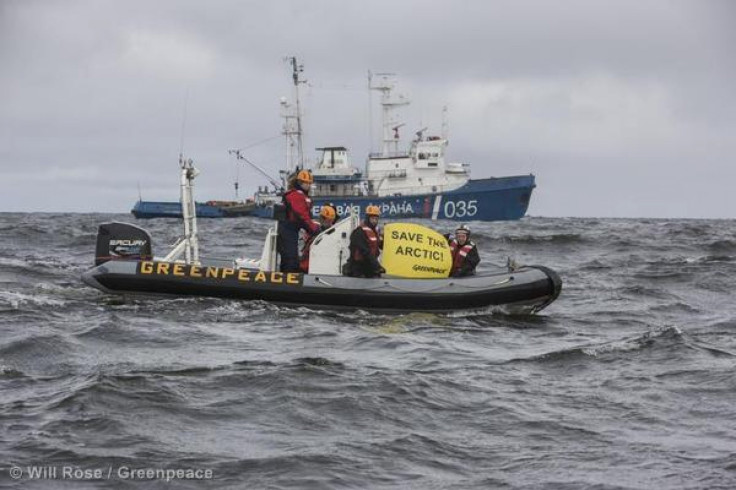Secret Russian Operatives Working To Thwart Europe's Natural Gas Sector, Outgoing NATO Chief Claims

Clandestine Russian operatives, ever lurking in the shadows, are working to thwart Europe’s natural gas sector by funding and orchestrating environmental groups.
At least that’s what the outgoing head of NATO claimed this week, a charge that prompted ridicule and criticism from environmentalists who oppose hydraulic fracturing, or “fracking,” the controversial method of forcing oil and gas deposits from tight shale rock.
Anders Fogh Rasmussen, the secretary general of the North Atlantic Treaty Organization and a former Danish prime minister, told reporters that the Kremlin is coordinating opposition to fracking in order to protect Russia’s position as Europe’s top gas supplier.
“I have met allies who can report that Russia, as part of their sophisticated information and disinformation operations, engaged actively with so-called non-governmental organizations — environmental organizations working against shale gas — to maintain European dependence on imported Russian gas,” he said at the Chatham House foreign affairs think tank in London.
Rasmussen didn’t elaborate further, saying only that, “This is my interpretation.” The politician clarified that he believes fracking should be used to bolster Europe’s energy security and reduce its reliance on imports, according to media reports.
The practice of fracking has yet to sweep Europe the way it has the United States, where shale drilling has been associated with methane leaks and groundwater pollution. But protests have taken off in the United Kingdom and other parts of Europe amid concerns that fracking could create environmental damage and exacerbate global warming emissions, the Guardian reported.
Environmental groups leading the anti-fracking movement scoffed at Rasmussen’s assertion that Russia was a secret benefactor.
“The idea we’re puppets of Putin is so preposterous that you have to wonder what they’re smoking over at NATO HQ," a Greenpeace spokesman said. “Mr. Rasmussen should spend less time dreaming up conspiracy theories and more time on the facts.”
Thirty Greenpeace activists and journalists were seized and threatened with long jail terms last year after Russian security forces boarded their ship in the Arctic. In May, 44 activists were arrested by Dutch police when they attempted to stop a Russian tanker from unloading its shipment of Arctic oil in Rotterdam, the Independent noted.
Andrew Pendleton, a campaigner at Friends of the Earth, said that, “Perhaps the Russians are worried about our huge wind and solar potential and have infiltrated the UK government.”
NATO's press office told the Guardian that Rasmussen’s remarks were his own and not official policy. However, an official did warn against the potential for Russia to use its energy supplies as a means of pressuring Europe. “No country should use supply and pricing terms as tools of coercion,” the official told the newspaper.
© Copyright IBTimes 2024. All rights reserved.











